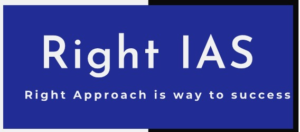Current affairs 27th August 2025 By Right IAS
Guidelines for regulating speech on social media
Supreme Court’s Intervention: The Supreme Court asked the Union government to prepare guidelines for regulating speech on social media. This arose from a petition against derogatory remarks made online about disabled persons. Judicial Overreach Concerns Such directions expand executive power in restricting speech.
Consequences of Expanding State Power to Police Speech Partisan misuse: Ruling parties may suppress political or critical voices. Fear and self-censorship: Citizens may hesitate to express freely. Stifled democracy: Critical truths and ideas are silenced. Creative impact: Filmmakers avoid socially progressive subjects. Journalistic impact: Reporters face FIRs for professional duties. Existing Government Regulations
The IT Rules, 2021 already give government control over digital speech.
Amendments allow government to demand removal of user content flagged by it. These rules are under challenge before the Supreme Court for being excessive.
Existing Legal Safeguards Indian law already criminalises hate speech and incitement to violence. Disadvantaged groups have legal recourse when genuinely targeted. Judicial Misperception of Role Courts cite “misuse of freedom of speech” as grounds for regulation.
This suggests a shift towards paternalistic control rather than rights protection. Judiciary’s proper role is protector of constitutional rights, not facilitator of executive power. Core Argument Giving more authority to an executive that has already misused speech laws is dangerous. Judicial directions risk legitimising further curbs on
The Hindu
The gender angle to India’s economic vulnerabilities
India’s Growth and New Challenge India’s economy is now worth $4.19 trillion and is set to become the third-largest economy in the world. But U.S. President Donald Trump has proposed 50% tariffs on Indian exports worth $40 billion. This could reduce India’s GDP by about 1% and badly hit industries like textiles, gems, leather, and footwear, which employ many women
India vs. China: China could manage U.S. tariffs because of its large manufacturing base and diverse exports. India is more vulnerable: The U.S. takes 18% of India’s exports.
